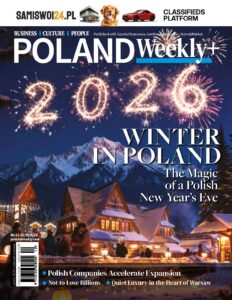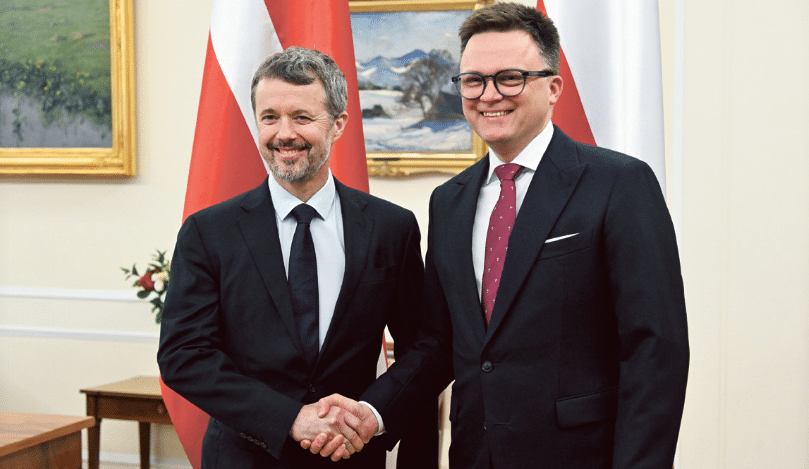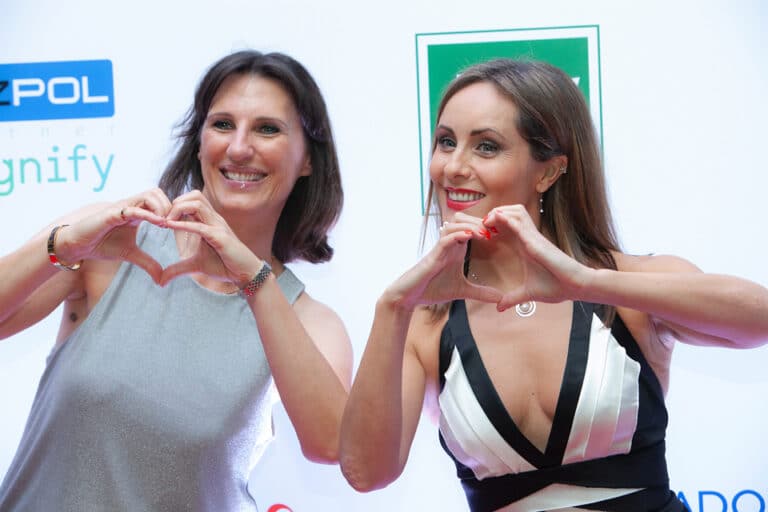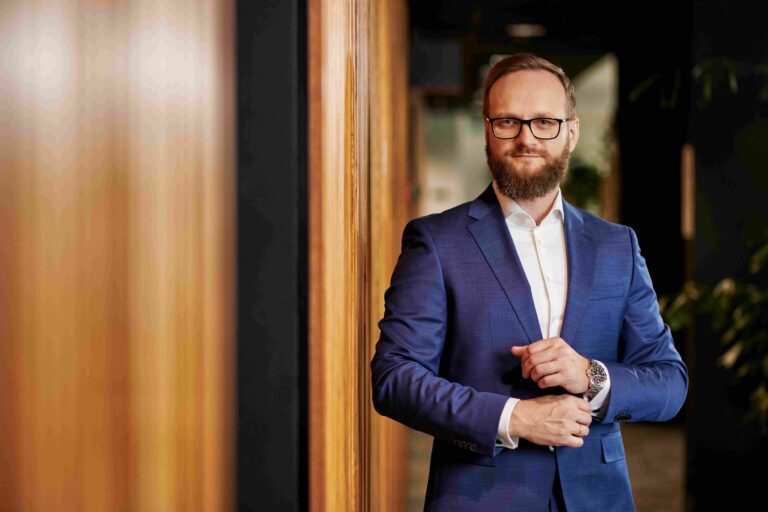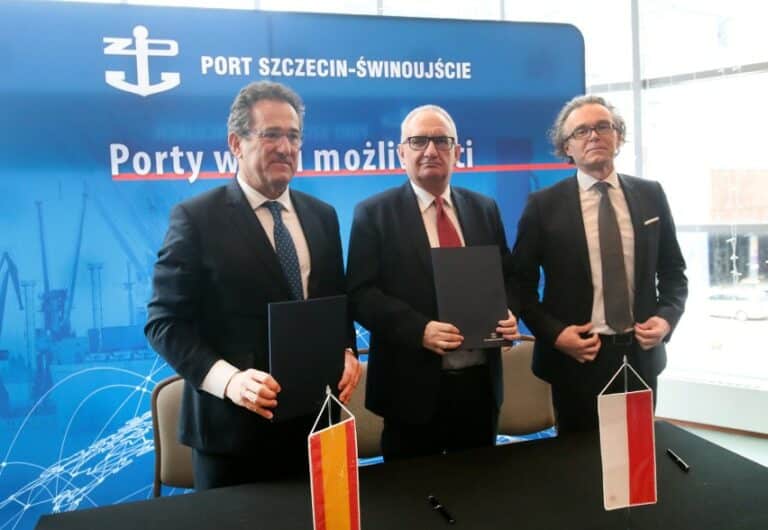Denmark’s King Frederik X come to Poland on first foreign trip as monarch
Denmark’s King Frederik X arrived in Warsaw on January 30 on his first visit abroad as monarch. Greeted by President Andrzej Duda, he later visited the Polish parliament where he met with the speaker of the lower chamber, Szymon Hołownia.
According to the Danish Embassy in Warsaw, the main areas of interest for the business delegation included energy efficiency, climate-friendly agricultural production and biogas.
“We are very proud that His Majesty’s first foreign visit is taking place right here in Poland. To us, it is a sign of the significance which Denmark attaches to relations with Poland, as well as a sign of friendship,” Duda said.
King Frederik X took the throne in January, succeeding his mother, Queen Margrethe II, becoming head of state not only in Denmark but also in two former colonies, Greenland and the Faroe Islands, both sovereign territories in the kingdom.
On February 1, King Frederik observed a signing agreement for a project designed to collect and reuse excess heat from the Warsaw metro by sending it into the city’s district heating system.
The City of Warsaw, the Royal Danish Embassy in Poland, Metro Warszawskie, Danfoss and Rambøll Group are joint signatories to the MoU in the presence of His Majesty King Frederik X of Denmark.
Excess heat is the world’s largest untapped source of energy. In Warsaw alone, the accessible excess heat can cover the heating demand of at least 275,000 people.
Danfoss signed a Memorandum of Understanding (MoU) together with the Municipality of Warsaw, the Royal Danish Embassy in Poland, Metro Warszawskie and Rambøll Group to make the Polish capital more sustainable.
The first step in the partnership, consisting of public and private entities, will focus on exploring the possibility of reusing excess heat from the Warsaw Metro system to heat private homes and buildings.
A feasibility study will be carried out with funds from the Export and Investment Fund of Denmark’s Green Accelerator Program being made available to the City of Warsaw.
Warsaw is a member city of the European Commission’s Cities Mission, a project aiming to achieve 100 climate neutral and smart cities in the EU by 2030, and this MoU is an important step towards achieving that.
The accessible excess heat in Warsaw alone can cover the heating demand of at least 275,000 people in Poland – and that is not considering further accessible excess heat from industries and data centers.
“The partnership is a great demonstration of what we can achieve when organizations work together, and the Memorandum of Understanding is an important first step to reuse the vast amounts of excess heat available in Warsaw and beyond. Rather than simply letting heat dissipate into thin air, we are taking active steps to capture and reuse it and paving the way for fully decarbonized heating in cities like Warsaw. And it isn’t only in the Warsaw Metro system; there is vast potential in reusing heat from wastewater facilities, industrial clusters, and data centers in major cities all over Europe. Excess heat can become a vital source of green energy and help accelerate the transition to renewables,” said Adam Jędrzejczak, President, East European Region, Danfoss.
King Frederick X of Denmark also officially opened the construction of a factory of wind turbine components for offshore wind farms in Szczecin, the first Vestas plant in Poland, scheduled to open in 2025 and employ approximately 700 people.
“It’s a great day for Vestas, but also a great day for Denmark, Poland and the whole of Europe,” said Henrik Andersen, CEO of Vestas, during the ceremony in Szczecin. Vestas intends to start building another offshore facility in this city soon, he said. “We must be ready for the increase in demand for offshore, especially in times of war and climate crisis, this is extremely important,”Andersen added.
“Poland is one of the key markets in Europe. The country’s energy transformation is proceeding at a very impressive pace. You have the potential to become a real European offshore hub,” said the CEO of Vestas.
Lars Aargaard, Minister of Climate and Energy of Denmark, noted that Vestas will soon become the largest foreign employer in Szczecin.
